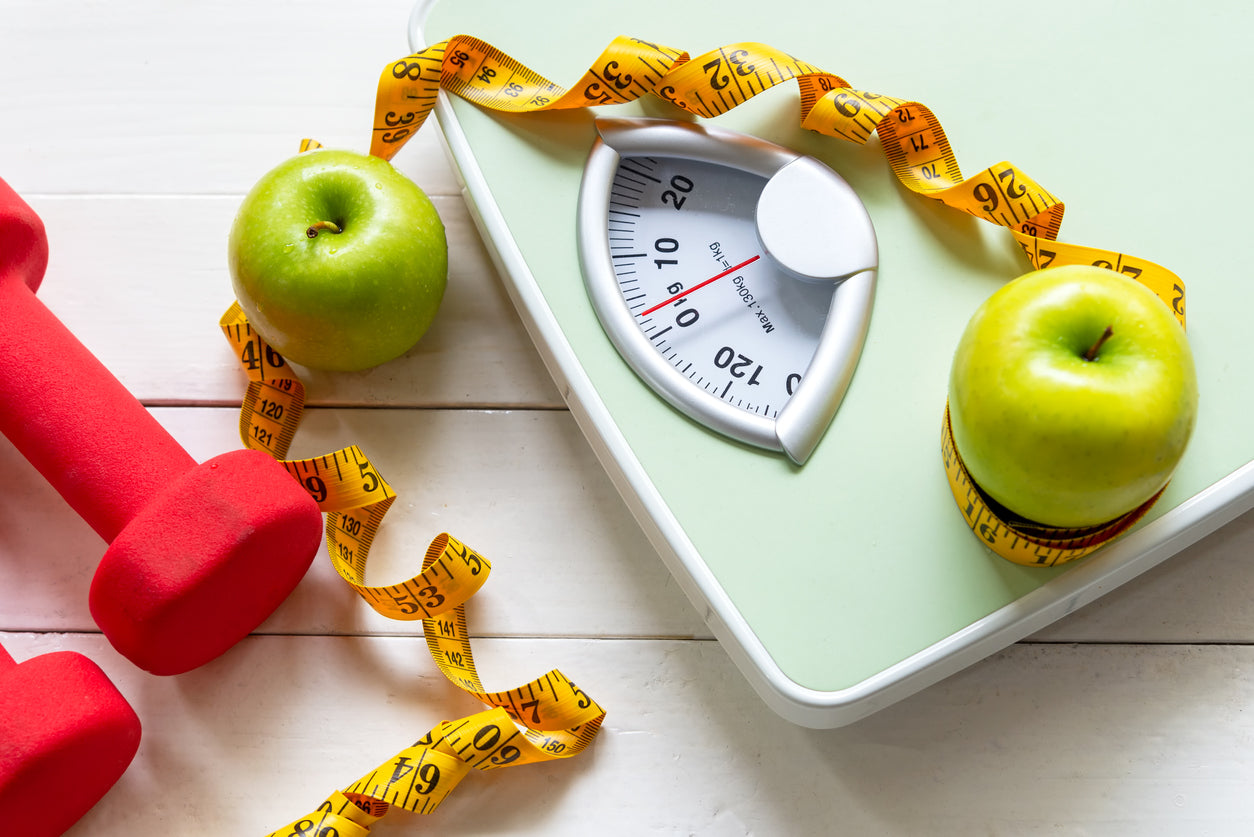By Ginger Cochran, MS, RDN, CDCES
It’s National Health Weight Week, and we at Designer Wellness are shining some light on what it means to be at a healthy weight. As a weight loss expert, I get asked, “What is a healthy weight,” daily; unfortunately, there is no straight answer. A healthy weight can differ for each person based on their genetics, fitness levels, and body type.
What it boils down to is where you feel most comfortable. To feel comfortable at any stage in our lives starts with a healthy mind. Focus first on a lifestyle that nurtures your mental health. The act of nurturing your mind will significantly impact disease risk and will, many times, naturally bring body weight into a healthy range for the individual.
Nurturing our mind and body; starts with nutrition. Our bodies need certain amino acids to rebuild themselves. For example, the amino acid leucine is required to stimulate protein synthesis to help rebuild tissues and muscle. Amino acids tryptophan, tyrosine, and phenylalanine are needed to make neurotransmitters serotonin, dopamine, and norepinephrine which are all required to regulate mood, sleep, and sense of happiness. Every meal we eat can tremendously impact how our brain and body operate while affecting our disease risk.
Eating complete proteins like Designer Soy, Designer Whey, Designer Egg, Designer Plant, beef, chicken, fish, eggs, and dairy help meet these needs. To meet amino acid needs, eat about 25-30g of protein at each meal.
Getting adequate protein is easily accomplished by adding at least one Designer Wellness shake a day or bumping up the protein at any snack with a Designer Protein Smoothie. Here is the breakdown of high-quality protein sources that are excellent sources of all the needed amino acids.
Excellent Amino Acid Sources
-
Designer Whey- 1 scoop 20g
-
Designer Plant- 2 scoops 22g
-
Designer Egg - 2 scoops 24g
-
Designer Soy- 2 scoops 20g
-
Aria- 2 scoops 15 g
-
Designer Wellness Protein Smoothies- 1 package 12g
-
Designer Collagen- 2 scoops 10g
-
Beef- 3 ounces (palm size) 28g
-
Chicken, turkey, and other poultry- 3 ounces 28g
-
Fish & seafood - 3 ounces 28g
-
Homemade bone broth or stock- 1 cup= 5g
-
Eggs- 1 egg = 8g
-
Greek Yogurt -Plain- 1 cup ~ 20g
-
Icelandic Yogurt-Plain- 1 cup ~ 28g
-
Edamame pasta- one serving ~ 40g
-
Edamame- 1 cup ~ 17 g
-
Tofu Firm- 3 ounces = 1 cup ~ 20g
-
Tempeh- 1 cup ~30g
To truly nurture our bodies and brains, aiming for 8-10 servings (1 cup raw, ½ cup cooked) a day of fruits and vegetables is highly beneficial. Fruits and vegetables provide our body with prebiotics to feed healthy gut bacteria, fiber to help regulate blood sugars and control lipid levels, a variety of essential vitamins and minerals, plus phytonutrients to provide disease-fighting benefits. Quality protein and plant intake work hand in hand to impact your brain health and disease risk.
The moral of the story is that body weight is just a number, and health is much more than a number. It’s how we nurture ourselves with what we eat, how we treat ourselves, and our daily habits. So the next time you start to think about if you’re at a healthy weight, think about how you feel in your skin and how you nurture yourself through habits and food. We at Designer Wellness are here to support you by providing high-quality products designed to give your body what it needs to thrive mentally and physically.
Sources:
Rondanelli M, Nichetti M, Peroni G, Faliva MA, Naso M, Gasparri C, Perna S, Oberto L, Di Paolo E, Riva A, Petrangolini G, Guerreschi G, Tartara A. Where to Find Leucine in Food and How to Feed Elderly With Sarcopenia in Order to Counteract Loss of Muscle Mass: Practical Advice. Front Nutr. 2021 Jan 26;7:622391. doi: 10.3389/fnut.2020.622391. PMID: 33585538; PMCID: PMC7874106.
Fernstrom JD. Dietary amino acids and brain function. J Am Diet Assoc. 1994 Jan;94(1):71-7. doi: 10.1016/0002-8223(94)92045-1. PMID: 7903674.




